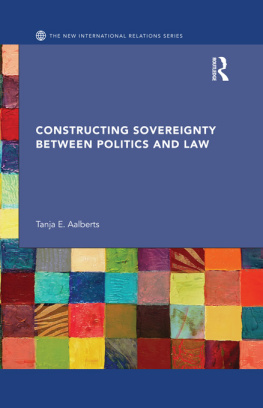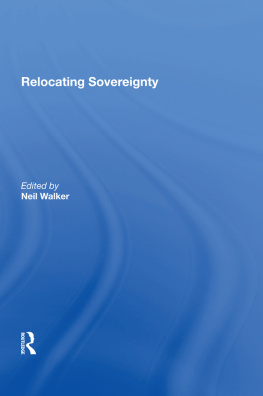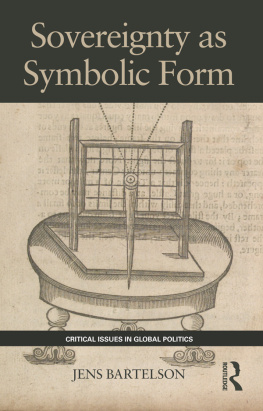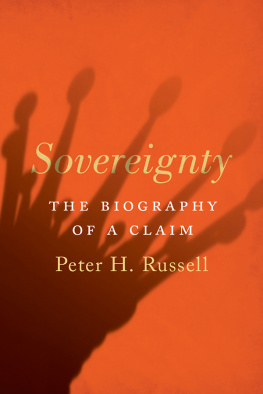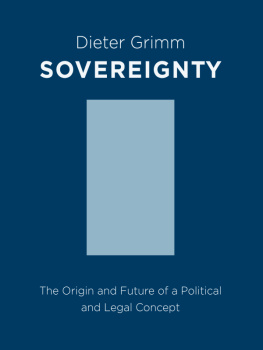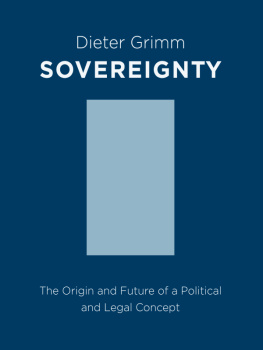STASIS BEFORE THE STATE
COMMONALITIES
Timothy C. Campbell, series editor

Copyright 2018 Fordham University Press
All rights reserved. No part of this publication may be reproduced, stored in a retrieval system, or transmitted in any form or by any meanselectronic, mechanical, photocopy, recording, or any otherexcept for brief quotations in printed reviews, without the prior permission of the publisher.
Fordham University Press has no responsibility for the persistence or accuracy of URLs for external or third-party Internet websites referred to in this publication and does not guarantee that any content on such websites is, or will remain, accurate or appropriate.
Fordham University Press also publishes its books in a variety of electronic formats. Some content that appears in print may not be available in electronic books.
Visit us online at www.fordhampress.com.
Library of Congress Cataloging-in-Publication Data available online at http://catalog.loc.gov.
Printed in the United States of America
20191854321
First edition
for Alexis
CONTENTS
STASIS BEFORE THE STATE
There is a commonly held narrative about constitutional forms in the Western political and philosophical tradition. The story is schematically as follows: Initially Aristotle and other ancient philosophers, including, influentially, Polybius, propounded the theory of the three constitutional formsmonarchy, aristocracy, and democracy. This model assumes a revolution or circularity between the three forms.
This narrative is still prevalenteven pervasivetoday in the form of the assumption that liberal democracy is the best or most desirable constitutional form. Even if this narrative is rarely explicitly stated, and then only to be quickly acknowledged as remaining incomplete or inadequateI am thinking here of books such as Fukuyamas The End of History the narrative remains largely unchallenged. Even Marxist thought, which identifies class struggle as the motor of historical development, rarely contests the historical fact of the triumph of representative forms of liberal democratic governance. Finallyand this is the most important pointthis narrative identifies liberal democracy as the utmost perfected form (to date) of sovereignty. Or, to put it the other way around, in the prevalent narrative about constitutional forms, sovereignty is reminiscent of what R. G. Collingwood calls an absolute presupposition. Sovereignty is the unquestioned and unquestionable premise assumed in the narrative that regards liberal democracy as the most perfect constitutional form. Tacitly, sovereignty is taken as omnipotent.
Is it possible to provide an alternative story, one that is, if not untold, at least rarely harkened? I am thinking here of the story according to which democracy is the primary constitution and, consequently, that all other constitutional formations are nothing but subversions of democracy. As Eric Nelson has shown, this argument against the cyclical change between the constitutions and for the primacy of democracywhich Nelson refers to as republican exclusivismemerges in the seventeenth century as a result of the renewed interest in the Hebrew republic. This is the politics that I want to describe in terms of agonism.
Such an agonistic democracy is not understood here as a constitutional form but rather as the form of the constitution. This story emerges in Spinozas Theological Political Treatise as well as his Political Treatise and then in Marxs notes on Hegels Philosophy of Right . According to this narrative, democracy is counterposed to sovereigntythat is, it does not presuppose sovereignty but is in fact presupposed by sovereignty. As I have argued in Sovereignty and Its Other , this alternative narrative can come to the fore only if we think of democracy in agonistic terms, that is, as being involved in a struggle with sovereignty. In this, I have been following Derrida and Negri, whoin different waysdraw a distinction between democracy and sovereignty. What I want to add here is that this agonism is monist. By monism I understand both the ontological condition that existence is never isolated but is always a being with and the political insight that there is only ever one constitution, democracy, and that all other constitutions are effects of democracy.
I will develop this position in the form of nine Theses. This form of presentation inevitably results in elliptical arguments, but the upside is a more synoptic perspective, which is my aim. Further, I will show how stasis plays a crucial role in the narrative that identifies democracy as the form of the constitution. There are multiple reasons for this, not least of all that the term constitution is in fact the Latin translation of stasis in forensic rhetoric. But more on stasis in due course.
We first need to frame the problem of the two different narratives about the constitution with more clarity, in particular through what I called the absolute presupposition of the predominant narrative, namely, sovereignty. Presupposing sovereignty as the necessary condition for constitutional forms essentially raises the question whether it is possible to conceive of a space separate from or not consumed by sovereignty.
This question would be trivial if sovereignty is understood simply as the sovereignty of specific states. The question is pertinent when we consider the violence functioning as the structural principle of sovereignty. Sovereignty can only persist and the state that it supports can only ever reproduce its structurespolitical, economic, legal, and so onthrough recourse to certain forms of violence. Such violence is at its most effective the less visible and hence the less bloody it is. This insight has been developed brilliantly by thinkers such as Gramsci, under the rubric of hegemony; Althusser, through the concept of ideology; and Foucault, as the notion of power. It is in this context that we should also consider Carl Schmitts definition of the political as the identification of the enemy. They all agree on the essential or structural violence defining sovereigntytheir divergent accounts of that violence notwithstanding.
The problem of a space outside sovereignty is complicated when viewed with this structural violence in mind. The effect of this structural violencein the wide variety of forms in which it can be expressed, given specific historicopolitical conditionsis that it proliferates exclusions. These can be the excluded within a social formation, such as the poor or minorities, or it can be those excluded from the state externally, such as foreigners, immigrants, and refugees. The excluded can also be thoughts or ideas, opinions or cultural practices, that do not conform to the mechanism of reproduction used by sovereignty. In fact, both of the exclusionspersonal and impersonal, for want of better termsare interconnected. For instance, the wide variety of racisms is always physical and conceptual. Thus, Gil Anidjar has shown in his remarkable Blood how blood is never only physical but also partakes of ideas through the rhetoric of sanguificationa move that allows him to show how blood is indelibly linked to the history and politics of Christianity. Orpreempting an example that I will deal with laterjustifying violence against refugees contributes to the affirmation of sovereign power. Exclusions are the phenomenal effects of a structural violence, and simultaneously they sustain and promote sovereignty by contributing to its ideological matrix. Exclusion both produces and is produced by structural violence. Thus, the operation of exclusion is the crucial mechanism for sovereigntys structural violence.
Next page

